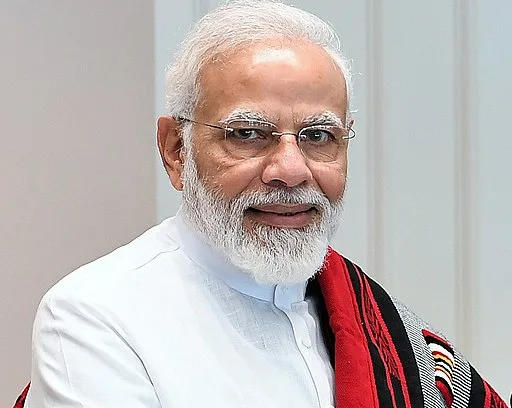Coalition partners like TDP, JD(U), and others secure significant positions in crucial governance bodies
In a strategic move aimed at bolstering coalition unity and governance efficiency, India’s National Democratic Alliance (NDA) has allocated key roles to its allies in the newly formed Cabinet Committees under Prime Minister Narendra Modi’s government. The reshuffle, known as “Modi 3.0,” reflects a concerted effort to integrate diverse political voices into decision-making processes at the highest levels.
Prominent among the changes is the inclusion of TDP MP K Rammohan Naidu, serving as the Civil Aviation Minister, in both the Cabinet Committee on Political Affairs and the Cabinet Committee on Parliamentary Affairs. This dual inclusion underscores Naidu’s pivotal role in shaping legislative strategy and political consensus within the alliance.
Embed from Getty ImagesJD(U) MP Rajiv Ranjan, also known as Lalan Singh, joins the Cabinet Committee on Parliamentary Affairs and the Cabinet Committee on Economic Affairs (CCEA), highlighting the party’s influence in economic policy formulation. Similarly, JD(S) MP HD Kumaraswamy’s appointment to the CCEA reinforces regional representation and strategic decision-making in economic matters.
Other notable appointments include Hindustani Awam Morcha (HAM) MP Jitan Ram Manjhi in the Cabinet Committee on Political Affairs and Lok Janshakti Party (LJP) MP Chirag Paswan in the Cabinet Committee on Investment and Growth. These appointments signify the NDA’s commitment to integrating regional perspectives and diverse political ideologies into national governance frameworks.
The realignment also saw BJP leaders taking on new roles: Shivraj Singh Chouhan in the CCEA, CR Patil, Jual Oram, and Kiren Rijiju in the Cabinet Committee on Parliamentary Affairs, and Manohar Khattar in the Cabinet Committee on Accommodation. Health Minister and BJP President JP Nadda’s dual membership in the Committees on Political Affairs and Parliamentary Affairs underlines his pivotal role in managing party dynamics and legislative strategy.
Veteran Union Minister Nitin Gadkari retains his membership across all previous committees while securing a permanent role in the Cabinet Committee on Skill, Employment, and Livelihood. This move acknowledges Gadkari’s expertise and leadership in infrastructure development and economic reforms.
Despite these strategic alignments, the government faces challenges in balancing regional aspirations with national interests and maintaining cohesion within the coalition. The inclusion of diverse voices enriches policy discussions but also necessitates consensus-building efforts, potentially impacting decision-making speed and policy outcomes.
Analysis:
Political Perspective: The formation of the new Cabinet Committees reflects the NDA’s strategy to consolidate political alliances and enhance governance effectiveness. By integrating coalition partners into crucial decision-making bodies, the Modi government aims to strengthen its political base and ensure broader support for policy initiatives. However, managing diverse interests and maintaining coalition unity amidst differing regional priorities could pose challenges in legislative and policy agendas.
Social Perspective: The inclusion of leaders from diverse backgrounds and regional parties mirrors India’s complex social fabric and the importance of regional representation in national governance. This move underscores the government’s effort to address socio-economic disparities and incorporate varied social perspectives into policy formulation. It also highlights the role of political alliances in reflecting and influencing societal norms and expectations.
Economic Perspective: The appointments to the Cabinet Committee on Economic Affairs (CCEA) signal the government’s focus on economic recovery and growth strategies. By involving regional parties in economic decision-making, the NDA seeks to align national policies with regional development priorities. However, balancing economic reforms with regional demands and ensuring equitable distribution of resources remain critical challenges.
